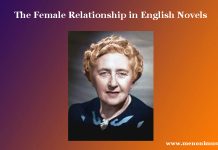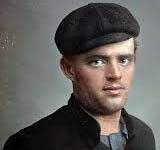The Theme of Love in Pride and Prejudice
Or
The Theme of Love and Marriage in Pride and Prejudice
The Theme of Love in ‘Pride and Prejudice’
The Theme of Love in Pride and Prejudice
The novelist Jane Austen (1775- 1817) begins her novel ‘Pride and Prejudice’ with the following sentence:
”It is a truth universally acknowledged that a single man in possession of good fortune must be in want of a wife.”
And this message is illustrated throughout the novel and the novelist makes love and marriage the central theme of the novel. There are some other themes as pride, prejudice, discrimination of social status and feeling of economic security. But all these themes are subordinate to the central theme of love and marriage. Through the theme of the novel, the novelist has substantiated that marriage based on economic condition and marriage based on sexual attraction and physical beauty are bad marriages. On the contrary, a marriage based on calm judgment and mutual understanding is the best marriage and is more apt to survive. In the novel, several marriages take place as- the marriage of Charlotte Lucas and Collins, the marriage of Lydia and Wickham, the marriage of Jane and Bingley and the marriage of Elizabeth and Darcy. We can bring an account of these marriages briefly as below:
First, we can consider the marriage of Charlotte Lucas and Collins. Mr. Collins is a young clergyman. Lady Catherine is his patroness. Though Collins is a clergyman he has neither Christian charity nor compassion. He is a pompous fool. He desired to inherit Mr. Bennet’s property by marrying one of the five Bennet daughters. He first proposes to the second Bennet daughter Miss Elizabeth. But she declines the offer of love. Then being frustrated, he turns to Charlotte Lucas who was Elizabeth’s best friend and the poor daughter of a local knight. Charlotte Lucas was getting older and needed a match for financial reasons. She is serious and intelligent. But she had neither fortune nor beauty to attract a better match other than Collins. So she accepted Collin’s offer and married him. The marriage of Charlotte Lucas and Collins is an example of bad or unequal marriage; because there was neither judgment nor mutual understanding. Charlotte married Collins only for social security. Later on, she had to suffer for their unequal marriage.
Secondly, we get the marriage of Lydia and Wickham. Wickham is a well-built and handsome young man. Whoever comes in contact with him, he admires because of his physical charm. But beneath his fascinating appearance, he is a deceitful, dissipated, hypocritical, liar, and a seducer. In search of fortune, he aspires to become a clergyman. On the other hand, the fifth but the youngest daughter of the Bennet couple was vulgar and stupid. She is fifteen and too young to have any moral awareness. She very easily falls into the trap of Wickham’s lust and one day he elopes with her. Before eloping with Lydia, he attempted to elope with Darcy’s sister Georgiana. Thus he appears to be a melodramatic villain. This marriage of Wickham and Lydia is the worst marriage because Lydia had to suffer a lot later on as there was neither real love nor affection between the two. The couple had to depend upon the financial help of Elizabeth and Darcy.
Thirdly, there is the marriage of Jane and Bingley. Bingley was the first target of the Bennet family to whom Mrs. Bennet wished to give one of her daughters to marry. He is passive and unaffectedly modest. He is easily influenced and easily persuaded to do things without trusting his own feelings. On the other hand, Jane the eldest daughter of the Bennet couple was the most beautiful, sweet and tender-hearted. They, Jane and Bingley, fell in love at first sight. There were similarities between the two both in nature and taste. But difficulty stood in the way of their formal engagement. Their marriage proved a happy one.
Fourthly a successful marriage takes place between Elizabeth the second daughter of the Bennet family and Darcy. Elizabeth is the lively, playful and most intelligent of the Bennet girls. While her match Darcy the nephew of Lady Catherine is an ideal master, an excellent brother and a generous and good-natured gentleman. He had no respect for silly ceremonies and stale conventions. He is one of the gentry inheriting a fortune and so is the most eligible young match for a girl like Elizabeth. First Elizabeth failed to appreciate him, but later on, after sound judgment and mutual understanding, they got married. This marriage was an ideal and best-suited marriage because it took place after mutual love and sound judgment.
Thus the novelist Jane Austen has brought about four marriages in the novel and shows that the best marriage is that which takes place neither on the basis of economics nor on the basis of physical charm, but on the basis of mutual love and understanding.
In carrying out the theme of marriage the novelist Jane Austin has portrayed the spirit of her age. During her time marriage was considered the only possible way to get fulfill a woman’s dream because no other avenue was open before a woman. During that time women had no rights over property nor were any economic or commercial means available to get economic freedom for them. They wished to get their desire fulfilled by marrying men with fortune. Hence they could not depend on a sound judgment or on mutual love. They had to be married only to get economic and social safety. And in bringing about this spirit of that age, the novelist has achieved success from head to heel. 0 0 0 The Theme of Love in Pride and Prejudice
The Theme of Love in Pride and Prejudice
Read More: Use of Wit and Irony in Pride and Prejudice
The Theme of Love in Pride and Prejudice
N. B. This article entitled ‘The Theme of Love in Pride and Prejudice’ originally belongs to the book ‘World Novel Criticism‘ by Menonim Menonimus. The Theme of Love in Pride and Prejudice, The Theme of Love in Pride and Prejudice
Related Searches:
- Love in ‘Pride and Prejudice’
- The Theme of Love and Marriage in ‘Pride and Prejudice
- Love Theme in ‘Pride and Prejudice’
Books of Literary Criticism by M. Menonimus:
- World Short Story Criticism
- World Poetry Criticism
- World Drama Criticism
- World Novel Criticism
- World Essay Criticism
- Indian English Poetry Criticism
- Indian English Poets and Poetry Chief Features
- Emily Dickinson’s Poetry-A Thematic Study
- Walt Whitman’s Poetry-A Thematic Study
- Critical Essays on English Poetry
- Tawfiq al-Hakim’s Novel: Return of the Spirit-An Analytical Study
- Tawfiq al-Hakim’s Novel: ‘Yawmiyyat Naib Fil Arayaf’-An Analytical Study
- Analytical Studies of Some Arabic Short Stories
- A Brief History of Arabic Literature: Pre-Islamic Period …












[…] in Jane Austen’s “Pride and Prejudice,” the opening chapters serve as an exposition, introducing the Bennet family, the societal […]